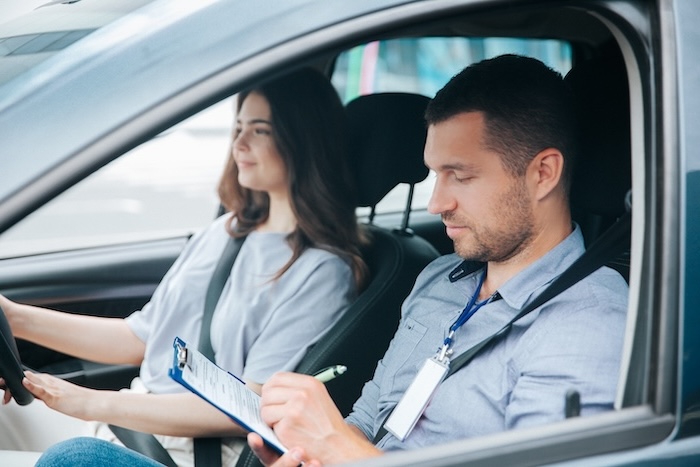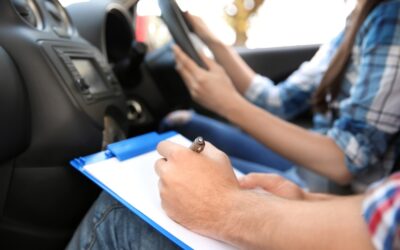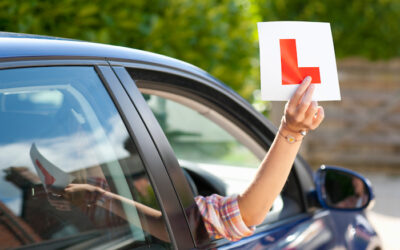When you come to book your driving test, you’ll find you have a choice of times to choose from. But what’s the best time to book your driving test? Are you more likely to pass if you take your test in the morning, for example?
In this post we’ll discuss some factors to consider when you’re booking your test – in terms of the time of day you choose, the day of the week, and even the month of the year.
How To Know You’re Ready To Book Your Test
Your driving instructor should let you know when you’re ready to book your test. They’ve spent a lot of time teaching you to drive, so they’ll know all about your habits and your abilities, and they’ll have a pretty good idea of your confidence levels. They won’t let you book your test until they’re sure you’re ready.
But what if you’re getting driving lessons from someone other than a qualified instructor, such as a friend of a family member? Well, according to the DVSA, the average UK learner driver needs around 45 hours of lessons and 22 hours of practicing before they’re ready to take their test.
So think about how many hours you’ve spent learning to drive in total. If you’re near or above the average, then it might be time to think about booking your test!
How Long is the Waiting List for Tests?
Following the lockdowns of 2020-2021, there was a huge backlog of driving tests in the UK. But the situation has calmed down a lot since then. According to the UK Government’s site, there is currently “no waiting list or cancellation list”, and you can book a test up to 24 weeks in the future.
Head here for more information about booking your test, including what you’ll need to provide, and what you should expect from the process.
What’s The Best Month to Take Your Driving Test?
The DVSA’s pass rate data suggests that learners are more likely to pass their test in the spring and the summer than in the autumn and winter – with April having the highest pass rate of all months.
However, the differences between the months are marginal. 49.6% of learners pass their tests in April. But in February, which has the lowest pass rate of all months, your chances of passing are only slightly lower at 46.2%.
There are obvious benefits to taking your test in the spring and the summer. The days are longer, and the weather is better, so you are less likely to have to take your test with reduced visibility, or in rainy, snowy, or icy conditions. Plus, if you take your test during the school holidays, the roads may be less busy too.
But this is not to say that you’ll struggle to pass if you take your test in the autumn or the winter! Talk to your instructor about practicing in less than perfect driving conditions to prepare you for anything that could happen on the day. And be sure to check our essential guide to driving in the winter.
What’s The Best Day to Take Your Driving Test?
As some roads are a little quieter at weekends, you might prefer to take your driving test on a Saturday or a Sunday. However, it usually costs a little more to book your test on a weekend. Plus, weekend test slots tend to fill up a lot quicker than weekday test slots.
Beyond this, the best day to take your test is whatever day is most convenient for you. Pick a day when you won’t be too busy, so you’re less likely to be stressed and distracted. Instead you will be able to concentrate on hopefully passing first time.
Finally, you might have heard that examiners only pass a certain number of learners each week, and that most of them have already filled their quota by Friday. This is a total myth. It’s simply not true that examiners only pass a set number of people.
So When Is The Best Time to Book a Driving Test?
In a nutshell, whenever is best for you but the road conditions change throughout the day so if you have a choice of times to take your test, think about the following:
- Early Morning – Take an early morning driving test and you’ll get your test over and done with as soon as possible, so it won’t be on your mind all day. But bear in mind that this may involve taking your test during the rush hour with potentially a lot more hazards involving cyclists, commuters, children, and other road users.
- Mid Morning and Afternoon – After the rush hour, the roads will be quieter, so you may encounter less congestion, and there may be fewer hazards to contend with.
- Evening Tests – Not all test centres offer evening tests and those that do may charge you a little more if you want to take your test later in the day. But if you can get a later test, you can skip the evening rush hour and enjoy relatively calmer and quieter road conditions.
Ready To Take Your Test?
At Go Girl, we provide learner drivers with comprehensive insurance. This means you can get full cover for all the practice you need before your test and if you are the policyholder you can immediately start building up your no claims discount on a provisional licence.
Learn more about our learner driver insurance and get covered online in minutes.




